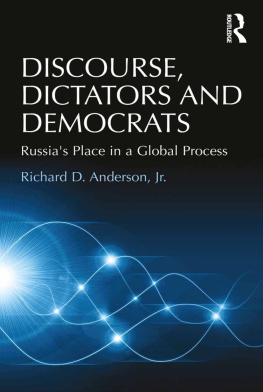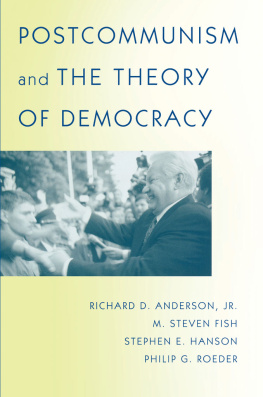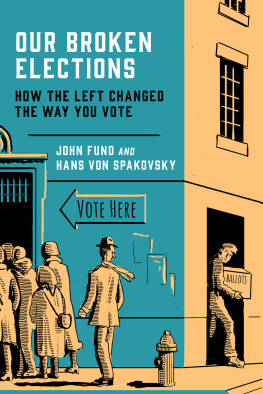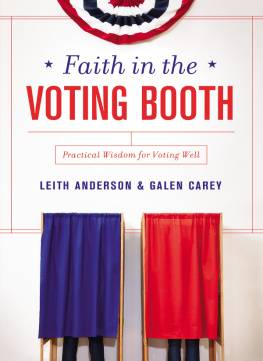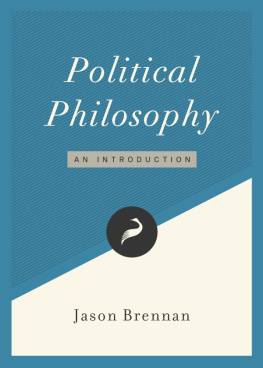DISCOURSE, DICTATORS AND DEMOCRATS
Discourse, Dictators and Democrats
Russias Place in a Global Process
RICHARD D. ANDERSON, JR.
University of California, Los Angeles, USA
First published 2014 by Ashgate Publishing
Published 2016 by Routledge
2 Park Square, Milton Park, Abingdon, Oxon OX14 4RN
711 Third Avenue, New York, NY 10017, USA
Routledge is an imprint of the Taylor & Francis Group, an informa business
Copyright 2014 Richard D. Anderson, Jr.
Richard D. Anderson, Jr. has asserted his right under the Copyright, Designs and Patents Act, 1988, to be identified as the author of this work.
All rights reserved. No part of this book may be reprinted or reproduced or utilised in any form or by any electronic, mechanical, or other means, now known or hereafter invented, including photocopying and recording, or in any information storage or retrieval system, without permission in writing from the publishers.
Notice:
Product or corporate names may be trademarks or registered trademarks, and are used only for identification and explanation without intent to infringe.
British Library Cataloguing in Publication Data
A catalogue record for this book is available from the British Library
The Library of Congress has cataloged the printed edition as follows:
Anderson, Richard (Richard Davis), 1950
Discourse, dictators and democrats : Russias place in a global process / by Richard D. Anderson, Jr.
pages cm
Includes bibliographical references and index.
ISBN 978-1-4094-6708-3 (hardback : alk. paper)
1. Political cultureRussia (Federation) 2. Political cultureSoviet Union. 3. Discourse analysisPolitical aspectsRussia (Federation) 4. Discourse analysisPolitical aspects Soviet Union. 5. RhetoricPolitical aspectsRussia (Federation) 6. RhetoricPolitical aspectsSoviet Union. 7. VotingSocial aspectsRussia (Federation) 8. Voting Social aspectsSoviet Union. 9. ElectionsCorrupt practicesRussia (Federation) 10. ElectionsCorrupt practicesSoviet Union. I. Title.
JN6695.A8625 2014
306.20947dc23
2013041825
ISBN: 9781409467083 (hbk)
ISBN: 9781315577494 (ebk)
Contents
List of Tables and Figures
Tables
Figures
Preface
As 1989 turned into 1990 my ability to read the Soviet press steadily deteriorated. Pentagon subsidies had enabled the University of Wisconsin to spend a couple summers teaching me Russian. I persevered elsewhere, and the American government duly employed me as an intelligence analyst. Many days devoted to paid perusal of Soviet publications taught me to read them. When I left federal employment in 1982 to earn a doctorate, that skill paid off in a dissertation and a book. If I could no longer read published sources, the skill that had fed me for so long was becoming obsolete. Then when the Soviet Union dissolved in December 1991, I realized that my skills had begun to obsolesce before political institutions transformed. Since effects cannot precede their own causes, any change in print Russian that had made it harder for me to read could not have been an effect of the end of the Soviet Union, although the abstract possibility then remained that some third cause had changed both politics and language use. I decided to investigate.
I knew the investigation would take a while. I thought it unpromising for a political scientist to write about Russian usage without first learning any linguistics. Noam Chomsky had justifiably confined himself and his epistemic community to the study of linguistic competence, while my topic was performancelanguage use, not language. The literature on language use was already enormous even without attempting Chomsky. Fortunately, two elevator rides interspersed with a very short stroll separated my office at UCLA from the fifth floor of Young Research Library, where very much of that literature reposes. A bit of it shows up here in References.
While reading some of it, I also built the corpora that have become . I take this opportunity to express gratitude to all the scholars who, seeing merit in the project, recommended funding it.
Field experience promptly revealed the problem. Intelligence analysis had trained me to read Russian but restricted the opportunity to speak it. My employment was incompatible with the extended stay in the Soviet Union necessary to acquire colloquial Russian. While language use in the press is of course still not colloquial Russian, before the dismemberment of the USSR the press language had already substantially converged toward the formal written expression of spoken Russian. This convergence attenuated my ability to read the press by filling it with words previously uncommon, with unfamiliar usages of familiar words, and with arrangements of words outside my experience with the Soviet press, and if there was any causal relationship, the cause definitely could not be the new political institutions that had emerged after the convergence began. The book before you proposes a causal mechanism from language use to politics and reports a series of tests whether that causal mechanism operates.
Among cognoscenti of the intellectual geography of political science, the sight of a book about causal properties of discourse emerging from within the UCLA Department of Political Science will surprise and perhaps even provoke. It should not. The book starts from the conviction shared by many of my colleagues and myself that a crucial force shaping politics is the human propensity to maximize private gain net of cost. These colleagues devote themselves to analyzing how this propensity causes politics. Yet analyses that I have learned from them over more than two decades confirm older analyses that I first heard about much earlier. These analyses prove that the propensity to maximize can only prevent politics. Many of my colleagues prefer to set these compelling analyses to one side, to bracket them. I explore here what happens within the intellectual brackets to induce enough people to do politics, to counteract their propensity to maximize and to make them leave available gains lying on the table. I accept that my results seem rather inconsistent with the methods used and conclusions reached by many of my colleagues.
Accordingly I thank my colleagues in political science at UCLA for many years of teaching me the fine points of their craft, and especially Kathleen Bawn, who certainly ranks among the worlds great teachers and patiently taught me the elementary statistical methods used in , Manny Schegloff, John Heritage, Steve Clayman, Olga Yokoyama, and Ron Vroon.
Although I alone have committed every error, in general no book of this kind is even barely possible in the absence of crucial contributions from others. A joy of scholarship is the readiness of fellow scholars far afield to answer inquiries. For this book I particularly need to recognize a series of linguists: Reem Bassiouney at Georgetown, who graciously advised a non-Arabist and contributed the transliterations in the section about Arabic in ; Ismail Poonawala at UCLA for correcting an error; conversation by email with Charles Russ, now emeritus at York, about German dialect; Eve Sweetser at Berkeley for email discussing her work on metaphor; Sandra Thompson for her encouragement in response to a talk she arranged for me at Santa Barbara. To Professor Bassiouney I extend my sympathies for the sufferings of her home country and its people consequential on the very topic that associates us. I also want to thank the Department of Political Science at Irvine and Steve Hanson, then at Washington, for inviting me to present my research. Steve, Steve Fish and Phil Roeder asked many penetrating questions as I prepared an early version of this argument for our joint volume published in 2001. Phil also read and commented cogently on a very early version.

